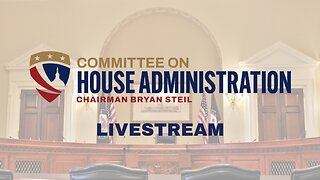Premium Only Content

Maximizing International Business Success: Exploring Trade Promotion Schemes
ISF Checklist || 805-970-7918 || [email protected] || www.isfchecklist.com
Trade promotion schemes, also known as trade promotion programs or initiatives, are measures put in place by governments to encourage and support international trade. These schemes aim to boost the participation of businesses in the global marketplace by providing various incentives and support mechanisms. There are several types of trade promotion schemes that governments and organizations implement. One of the most common is export promotion, which focuses on increasing exports by providing financial assistance, market research, and trade mission support to businesses. Another type is import substitution, which aims to reduce dependency on imported goods by promoting domestic production. Governments may offer tax incentives, subsidies, and grants to encourage businesses to produce goods locally. Trade promotion schemes offer several benefits for businesses looking to expand their international presence. Firstly, they provide financial assistance, such as loans and grants, which can help cover expenses related to market research, product development, and marketing efforts. Secondly, these schemes provide invaluable market information and research, helping businesses identify potential export markets, understand consumer preferences, and adapt their products accordingly. Additionally, trade promotion schemes can offer support in the form of trade missions, where businesses can participate in trade shows, networking events, and meetings with potential buyers or partners. This helps build valuable connections and facilitates business collaborations. Governments play a crucial role in implementing trade promotion schemes. They create policies and regulations that support international trade, negotiate trade agreements, and provide financial support to businesses. Governments also establish economic zones, free trade zones, and special economic zones that offer businesses favorable conditions, such as reduced taxes, simplified customs procedures, and access to infrastructure and logistical support. Now, let’s take a look at some real-world examples of trade promotion schemes. One notable initiative is the Generalized System of Preferences (GSP), implemented by various countries. Under the GSP, eligible developing countries are granted preferential tariffs or duty-free access to certain import markets, promoting their exports. Another example is the Trade Promotion Coordinating Committee (TPCC) in the United States. The TPCC brings together different government agencies to support trade promotion activities, coordinate trade policy, and provide resources and assistance to businesses. Trade promotion schemes are vital to fostering international business participation. They provide businesses with the necessary support, financial assistance, and market information to thrive in the global marketplace. So, if you're looking to expand your business internationally, make sure to explore the trade promotion schemes available in your country.
#usimportbond #isfcustomsbroker #uscustomsclearing #isfentry
Video Disclaimer Here: This video is purely educational and has no ties with the US government.
-
 1:53:20
1:53:20
Benny Johnson
2 hours ago🚨PANIC: Clintons Threatened With ARREST Over REFUSING Epstein Testimony | Files Release Imminent…
27.1K26 -
 1:41:54
1:41:54
Graham Allen
3 hours agoEpstein Files WILL BE RELEASED!! Not How You Think! + Kirk’s Head Of Security Exposes ALL!!
134K713 -
 LIVE
LIVE
Badlands Media
10 hours agoBadlands Daily: November 19, 2025
3,449 watching -
 1:29:34
1:29:34
Committee on House Administration
21 hours agoFull Committee Hearing: “Taking Stock of the STOCK Act”
15.1K2 -

Wendy Bell Radio
7 hours agoTruth Is A 4 Letter Word
57.2K66 -
 LIVE
LIVE
Major League Fishing
6 days agoLIVE! - Fishing Clash Team Series: Summit Cup - Day 4
159 watching -

The Big Mig™
4 hours agoEpstein Files Transparency Act Passed!
3.88K13 -
 DVR
DVR
The State of Freedom
4 hours agoFLF: #27 Be Generous & Save Big: Smart Tax Moves to Make Before Year's End w/ Sean Briscombe
2.41K -
 36:28
36:28
The Kevin Trudeau Show Limitless
2 hours agoThe Real Reason Your Relationships Fail
9.72K2 -
 8:07
8:07
Rethinking the Dollar
2 hours agoSilver Just Got Strategic: Don’t Miss Your Move
8.36K